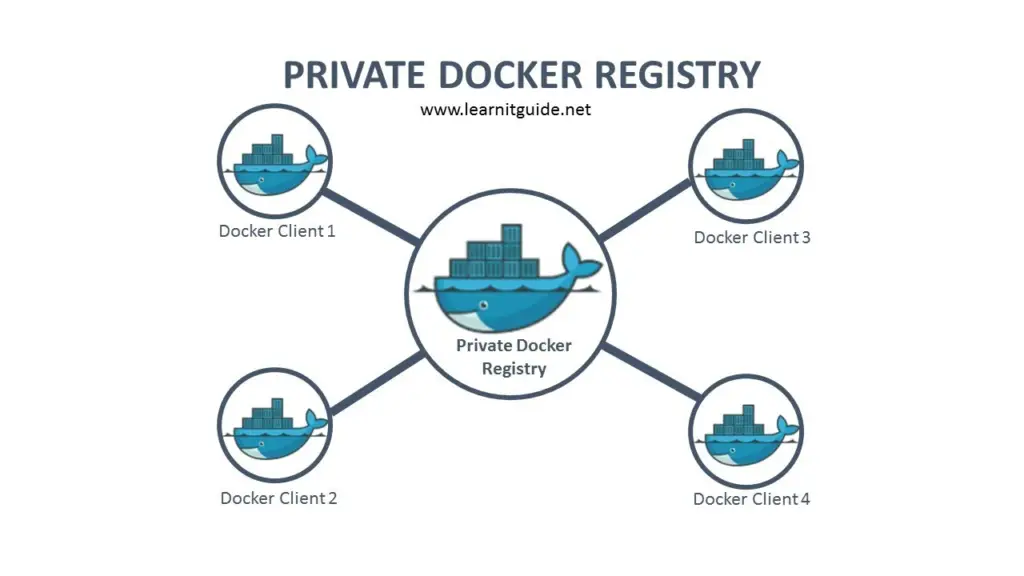
Docker content is becoming more important to businesses of all sizes. Unfortunately, these organizations often encounter some technical constraints that bottleneck their ability to scale the benefits of their code and Docker content. As a result, a growing number of companies are starting to turn to Docker registries. The market for Docker containers is going to be worth $2.7 billion by next year, due to their countless benefits.
What Are the Benefits of Docker Registries for SMEs?
Docker registries offer a large number of benefits to organizations looking to develop enterprise applications. Some of the biggest benefits are listed below. You can leverage these benefits through a collection of Docker repositories.
Facilitate automation of the docker image generation process
Creating docker images manually can be a very tedious and time-consuming process. It simply is not feasible to create individual images when the organization needs to produce thousands of them a day.
This is one of the number one benefits of using Docker registries. These types of registries have made the automation of docker content production much easier.
Ensure compatibility across all accessing devices
Compatibility is a serious issue that every organization needs to take into consideration when giving users access to their content. Developers often find that the design they create works well on their own device. Unfortunately, users accessing from another device might not be able to see the content well.
Docker registries resolve a lot of these issues and ensure a much more seamless content strategy. They ensure high levels of compatibility across many different types of devices, which is essential to creating a good user experience.
Ensure greater internal security through tightly controlled permissions
Collaboration is a crucial component of any Docker content strategy. Organizations need to leverage the talents of different employee skill sets and assign tasks appropriately.
Unfortunately, the collaboration also entails certain risks and drawbacks. One issue is that employees could get confused about their responsibilities and accidentally edit another employee’s content. Employees that lack certain technical skills might also create complications, which can cause a host of headaches for everybody on the team.
This is another major benefit of Docker registries that don’t get the publicity that it deserves. Docker registries enable organizations to assign different permissions to every employee on the team. They can ensure that employees are only given access to certain technical features that they are equipped to handle. Administrators can also revoke permissions to edit certain content after a project has been finished, which greatly reduces the risk that an employee could inadvertently compromise content after it has been moved to the next stage of the pipeline.
Simplifying configurations
Many of the experts that talk about the benefits of Docker registries emphasize the versatility of them. They point out that this technology is excellent for improving automation capabilities.
However, there is a humbler yet equally beneficial feature of registries. Docker registries are excellent for enhancing simplification. Developers can easily introduce their own configuration and deploy it in their code. The benefits of simplification significantly reduce the time sink associated with troubleshooting.
Improving security
Security is another major concern of all enterprise applications. This is one of the biggest advantages of Docker registries for companies that are concerned about the risk of data breaches or malware problems.
There are a number of ways registries can improve security. One of the biggest benefits is that these registries can be set to private networks, which significantly reduces the risk that third parties can access them. Administrators responsible for overseeing docker registries have significant control of the permissions and can greatly limit access to sensitive content.
Continuous testing
Enterprise applications are always going to have certain imperfections. These imperfections will be significantly reduced through the testing process, but testing can be very tedious for developers to handle on their own.
This is where continuous testing comes in. Docker registries continually test code. The testing process does not require or can human developers to be manually involved, which helps ensure that it is completed more quickly.
Docker registries are ideal for enterprise application development
Enterprise applications are incredibly complex. Fortunately, there are tremendous benefits of using docker registries. They are great for automating every stage of the process and ensuring greater security. All small and medium sized organizations should consider their benefits.










